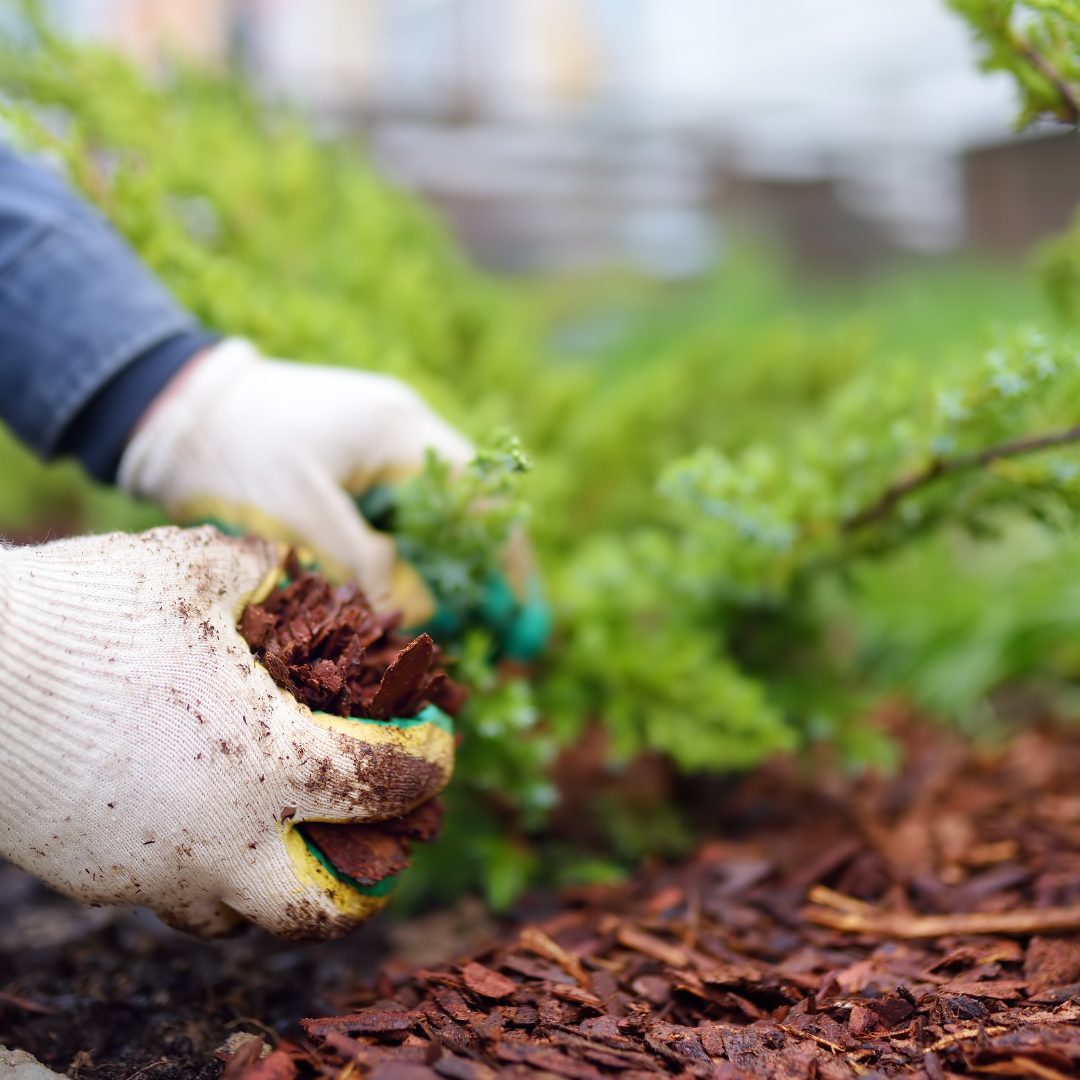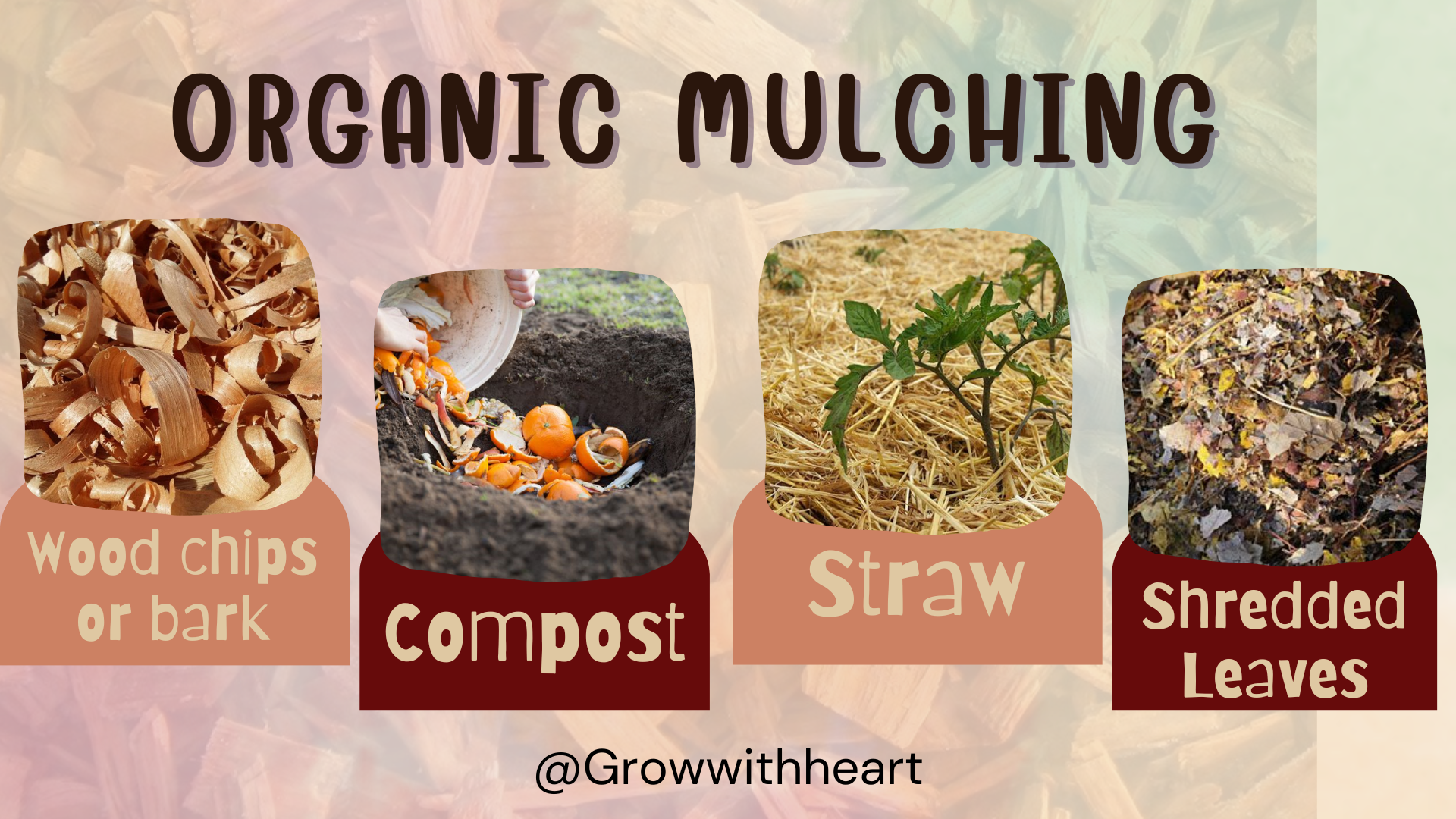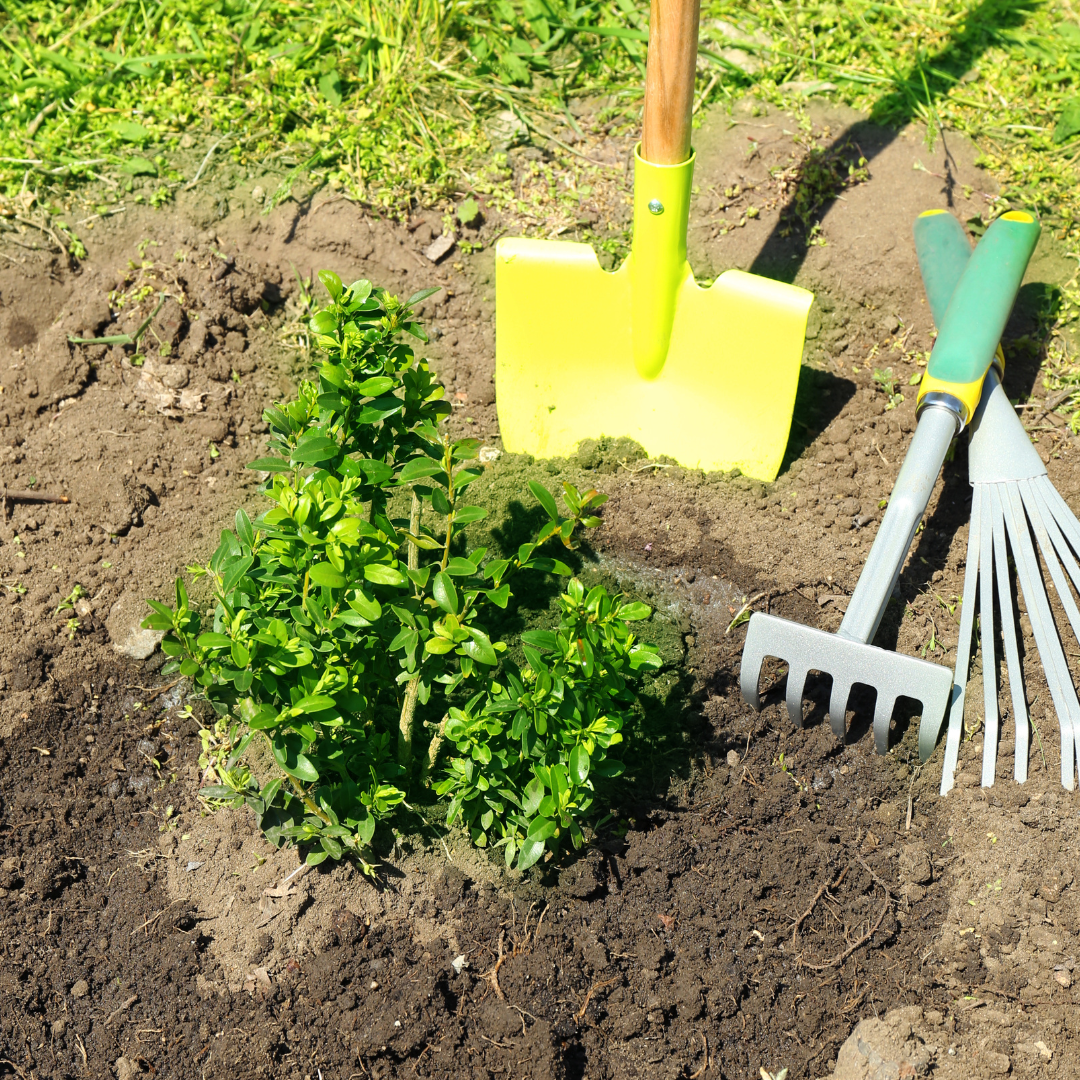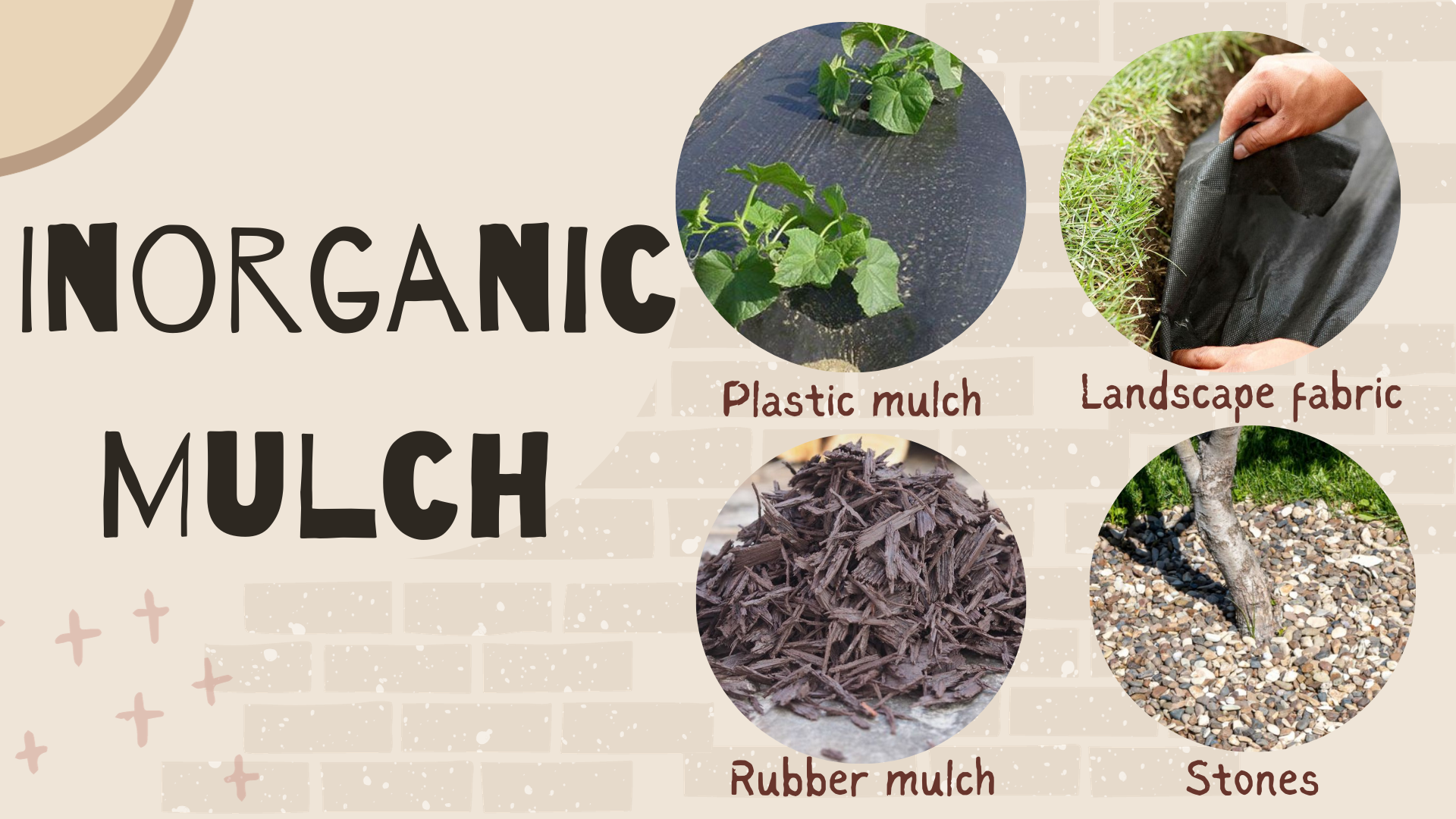Mulching is a straightforward yet highly effective practice in gardening and agriculture. By covering the soil with organic or inorganic materials, mulching helps conserve water, suppress weeds, and improve soil health.
This article explores how mulching contributes to water conservation and offers practical tips on implementing it effectively.

What is Mulching?
Mulching involves spreading a layer of material over the soil’s surface. The material can be organic, like straw or leaves, or inorganic, such as plastic or gravel.

Mulching primarily protects the soil and conserves water by reducing evaporation and improving soil structure.
How Mulching Conserves Water

Mulching conserves water in several important ways:
- Reducing Evaporation: By covering the soil, mulch minimizes direct sunlight exposure, reducing the rate at which water evaporates. This allows the soil to retain moisture longer, reducing the frequency of watering.
- Preventing Soil Erosion: Erosion washes away topsoil, which is vital for retaining water. Mulching stabilizes the soil, preventing erosion and maintaining its water-holding capacity.
- Improving Soil Structure: Organic mulches decompose over time, adding organic matter to the soil. This improves the soil’s ability to retain moisture, making it more resilient during dry periods.
- Suppressing Weeds: Weeds compete with plants for water. Mulch suppresses weeds by blocking sunlight, reducing their growth, and thus conserving water for the desired plants.
Types of Mulch and Their Water Conservation Benefits
- Organic Mulch: Materials like straw, wood chips, and compost are excellent for water conservation. They decompose, enriching the soil and enhancing its moisture-retention capacity. Organic mulch also helps regulate soil temperature, further reducing water loss.
- Inorganic Mulch: Inorganic options like plastic sheets or gravel are effective in reducing evaporation and controlling weeds. However, they do not improve soil fertility and may cause the soil to heat up, leading to increased evaporation if not used carefully.

Additional Benefits of Mulching
Beyond water conservation, mulching offers other significant advantages:
- Temperature Regulation: Mulch insulates the soil, keeping it cooler in summer and warmer in winter. This stable temperature helps reduce stress on plants and minimizes water loss through evaporation.
- Enhancing Soil Fertility: Organic mulch adds nutrients to the soil as it decomposes, improving soil fertility and reducing the need for chemical fertilizers. Fertile soil retains water better, further aiding in water conservation.
- Supporting Soil Life: Mulch creates a favorable environment for beneficial organisms like earthworms, which improve soil structure and water retention through their activities.
Practical Tips for Effective Mulching
- Choosing the Right Mulch: Select mulch based on your specific needs. Organic mulches are generally recommended for most gardens and fields due to their dual benefits of water conservation and soil improvement.
- Applying Mulch at the Right Time: Apply mulch during the growing season when plants need moisture the most. For annual crops, mulch after planting, and for perennials, apply it in spring or fall.
- Proper Mulch Thickness: A layer of 2-4 inches is usually sufficient for effective water conservation. Too much mulch can suffocate roots, while too little may not provide adequate coverage.
- Regularly Replenish Mulch: Organic mulch decomposes over time, so it’s important to replenish it periodically to maintain its effectiveness.
- Keep Mulch Away from Stems: Ensure that mulch is kept a few inches away from plant stems to prevent rot and discourage pests.

Common Mulching Mistakes to Avoid
- Using Inappropriate Mulch: Not all mulch types are suitable for every situation. For example, using plastic mulch in small gardens might cause overheating. Choose the mulch that best fits your garden’s needs.
- Over or Under Mulching: Applying too much mulch can suffocate plants, while too little won’t conserve water effectively. Stick to the recommended 2-4 inch layer.
- Ignoring Weed Growth: While mulch suppresses weeds, some may still sprout. Regularly check and remove any weeds that break through the mulch layer.
- Neglecting to Replenish Mulch: Failing to replenish organic mulch reduces its effectiveness in conserving water. Regularly add new mulch to maintain the appropriate thickness.
Mulching in Sustainable Agriculture
In sustainable agriculture, mulching is vital for conserving water and maintaining soil health. It aligns with the principles of resource conservation by reducing the need for frequent watering and improving soil structure.
In regions prone to water scarcity, mulching is particularly beneficial, helping farmers maintain crop yields even in dry conditions.

Conclusion
Mulching is a powerful and simple practice that offers numerous benefits, with water conservation being one of the most important. By reducing evaporation, preventing soil erosion, improving soil structure, and suppressing weeds, mulching helps create a sustainable and efficient growing environment.
Whether you are gardening at home or managing a large agricultural field, implementing mulching can lead to significant water savings and healthier plants. With the right type of mulch, proper application, and regular maintenance, you can maximize the benefits of this essential practice.
In the face of increasing water scarcity and the challenges posed by climate change, the role of mulching in water conservation is more critical than ever. It’s a practice that not only benefits individual plants and gardens but also contributes to the overall sustainability of agriculture.

Pingback: Cost-Effective Irrigation Techniques for Small Farms
Pingback: How to Reduce Water Usage in Small-Scale Farms
Pingback: 3 Natural Methods to Control Weeds
Pingback: How to deal with common plant diseases organically?
Pingback: Organic Mulching for Soil Health: A Simple Guide -